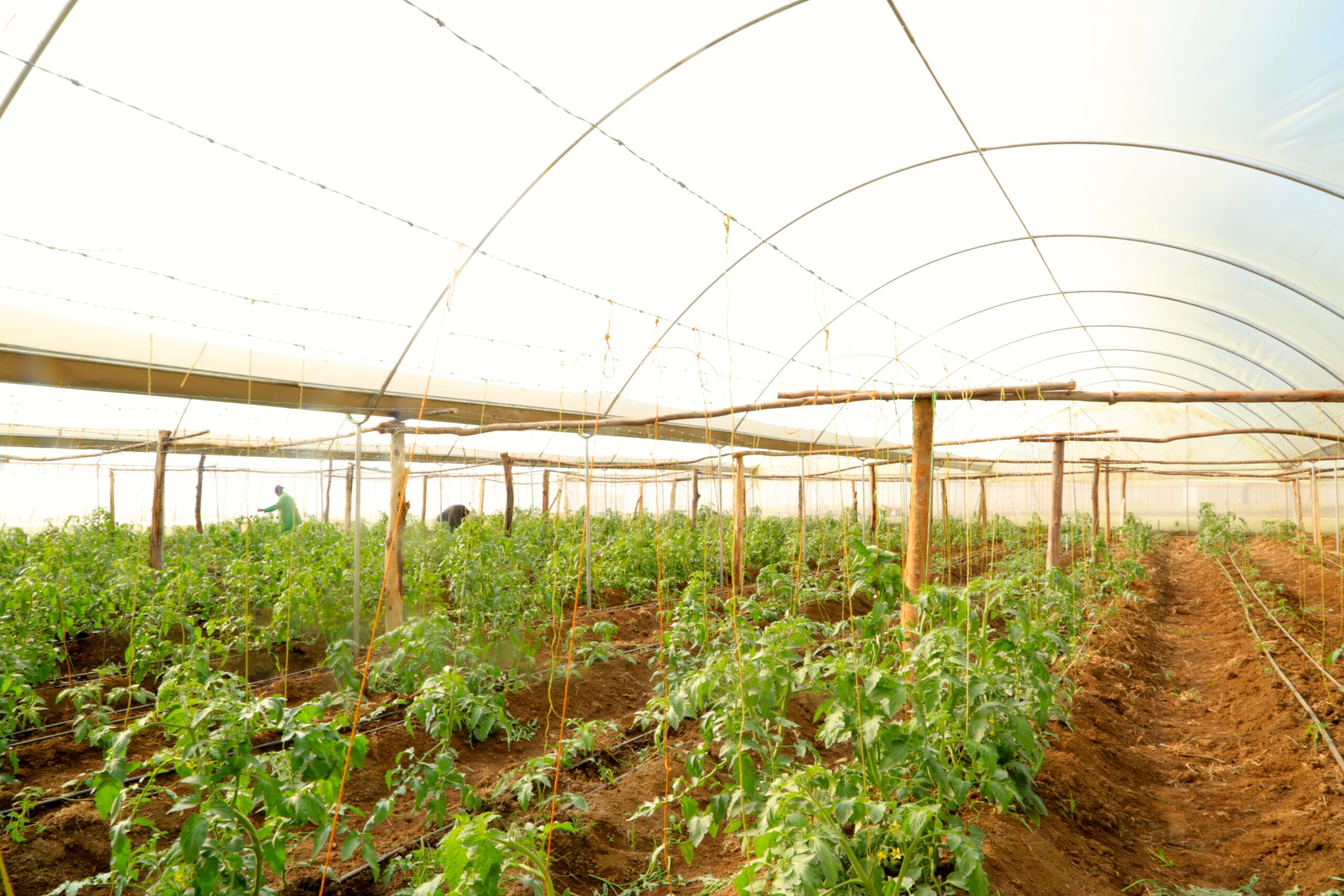
Attracting the youth to invest in greenhouse farming
Imagine that with as little as $150 (Ksh 15,000) per month, you could invest in a business that would yield a return of $3,800 (Ksh 380,000) within the first six months.
That’s exactly how Peter Wangai Muriithi, Founder and CEO of Golden Escape Group Limited, hopes to lure young people into agri-business by ‘Creating wealth and feeding the world’ as his business tagline says.

For years, farming in Kenya has been regarded as the backbone of the economy, directly contributing 24% of the annual GDP and another 27% indirect contribution (ASDS, 2010 – 2020). Yet, according to the country’s Ministry of Agriculture, the majority of those engaged in agricultural activities are aged between 50 and 65 years.
The decreasing number of young people involved in farming as an occupation/business is a cause for concern. It is already having a negative impact on the economy.
While the agriculture sector offers many job opportunities for Kenyan youth, many young people still view agriculture as a last resort.
Information on access to markets, factors of production including land and financing remain extremely limited hindering adequate engagement of the youth in agriculture.
The World Bank released a report which stated that in Kenya, youth unemployment is higher than the overall national unemployment rate. While the latter is around 10% it goes as high as 35% for youth, depending on the age group. According to Willy Bett, former Cabinet Secretary for the Ministry of Agriculture, agriculture is critical in creating employment and uplifting the living standards of the Kenyan people. That’s where Golden Escape Limited comes in.
The company offers interested individuals the chance to invest in greenhouse farming, a method where plants are grown in a building, made of either wood or glass, under a controlled microenvironment.

Growing up in Nyandarua town, in the central part of Kenya, Peter witnessed first-hand the challenges of poor farming methods. His parents owned a farm and as they did not have the market or the tools to ensure that their produce was sustainable, they often went into losses after selling their produce.
While speaking to CGTN, Peter says this inspired him to set up his business, earn money and at the same time contribute to ensuring food security in the country.
“If we can have a proper way of farming then we can help other farmers who are struggling as my parents did,” he says.
According to Peter, the benefits of greenhouse farming outweigh what one would achieve through open farming. Due to the fact that the crops are grown in specialized structures, temperature, water and humidity are controlled, which results in healthier crops.

“You feed the crops using the drip lines, there is no wastage of water because the amount of water used is controlled,” he says.
Crops grown in greenhouses produce in higher yields because the crops are grown in conditions that are suitable for maximum productivity. This usually results in maximum produce with just a small portion of land. It is also possible to grow crops at any time of the year. This is different from traditional farming where you have to rely on particular seasons to grow crops.
All these benefits to greenhouse farming ensure that the crops grow faster and therefore offers higher yields per acre and farmers can sell these products and earn high incomes.
‘The faster your crops grow, the faster you take your produce to the market, the faster you get your money’

For those looking to invest in greenhouse farming but worried about the accessibility of markets for the produce, Peter assures the availability of a market due to the growing demand for fresh farm produce such tomatoes, herbs and carrots.
“If there is something that will never lack market, it is food because every day children are being born, people have to eat, three times a day”
“You will never go wrong in investing in food because people have to eat every day.”
For those interested in greenhouse farming, Peter outlines some of the steps that are followed.
“We will start by sending one of our agronomists for site assessment, who will also take soil samples for analysis to help us select the best crop to be planted at your place”
“After the soil analysis, we will send the results between 4-5 working days and recommendation on the types of crops to be grown. After we agree on the quotations, we will sign a contract for the construction and planting of seedlings,” he says.
After planting, the client is then required to manage the greenhouse but technical advice can be offered whenever needed.

The greenhouse investments are not limited to landowners only. The company has set up 50 greenhouses for sale in Nyandarua where clients without land of their own can invest in these greenhouses.
“We have greenhouses which we are leasing together with the crops (whole package), they are of two sizes 8×15 metres with returns of Kshs 400,000 per year and 8×30 metres with returns of Kshs 550,000 per year payable in two seasons,” Peter says.
In this era of youth unemployment and underemployment, many young people have turned to other forms of money-making schemes which often end up biting them in the back. Peter hopes that the youth can move away from the mentality of fast cash and seek to create wealth for themselves instead. According to the World Bank, agriculture will be a trillion-dollar business in Africa by 2030 and Peter is encouraging everyone to be a part of this.
“The traditional way of farming is being phased out by harsh environmental conditions, so you have to improvise and do greenhouse farming”
“If you look at a country like Turkey, 70% of the country is full of greenhouses and they export their produce to Russia, that shows that in the next coming years, greenhouses will be the in thing,” he adds.






